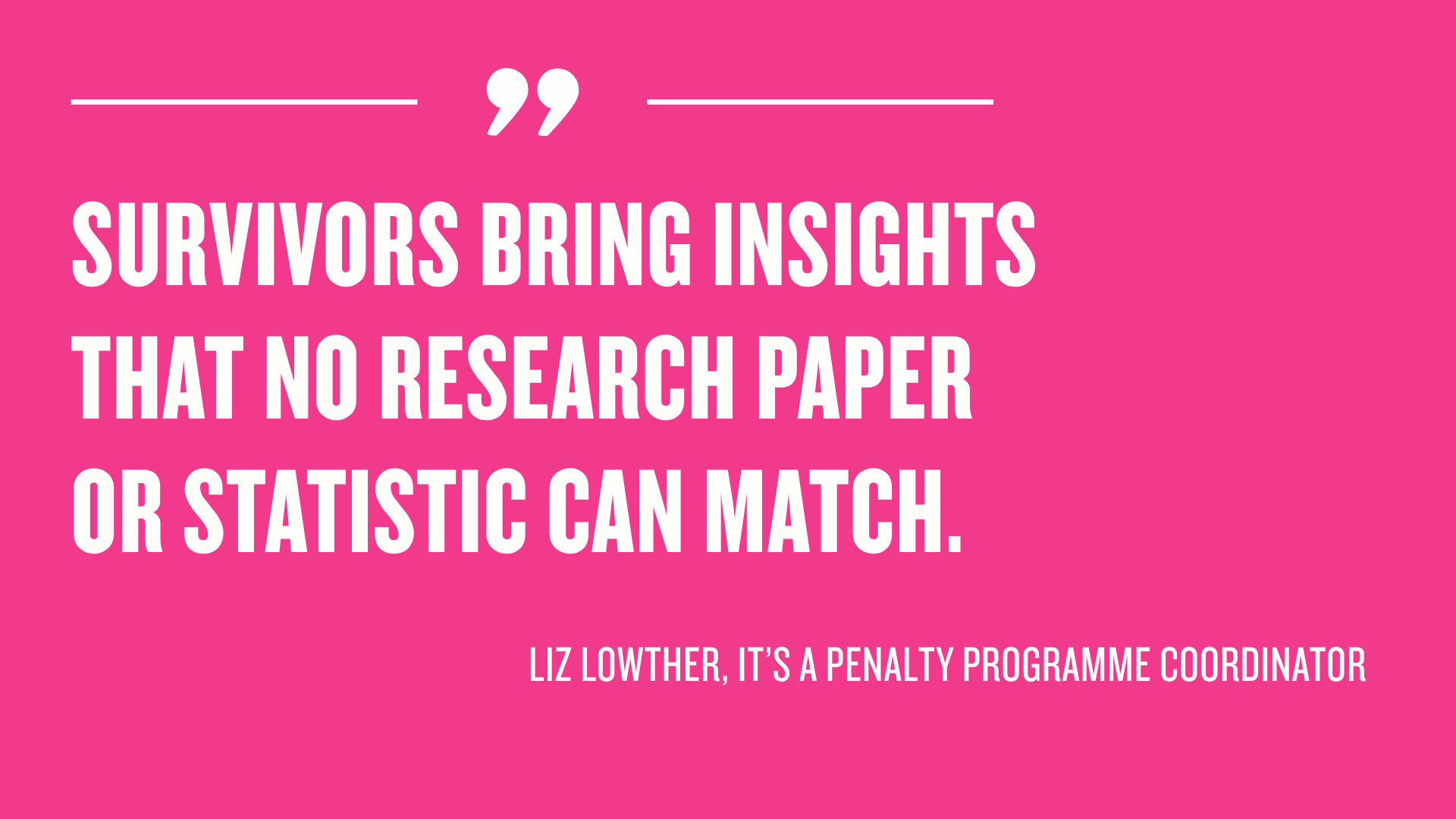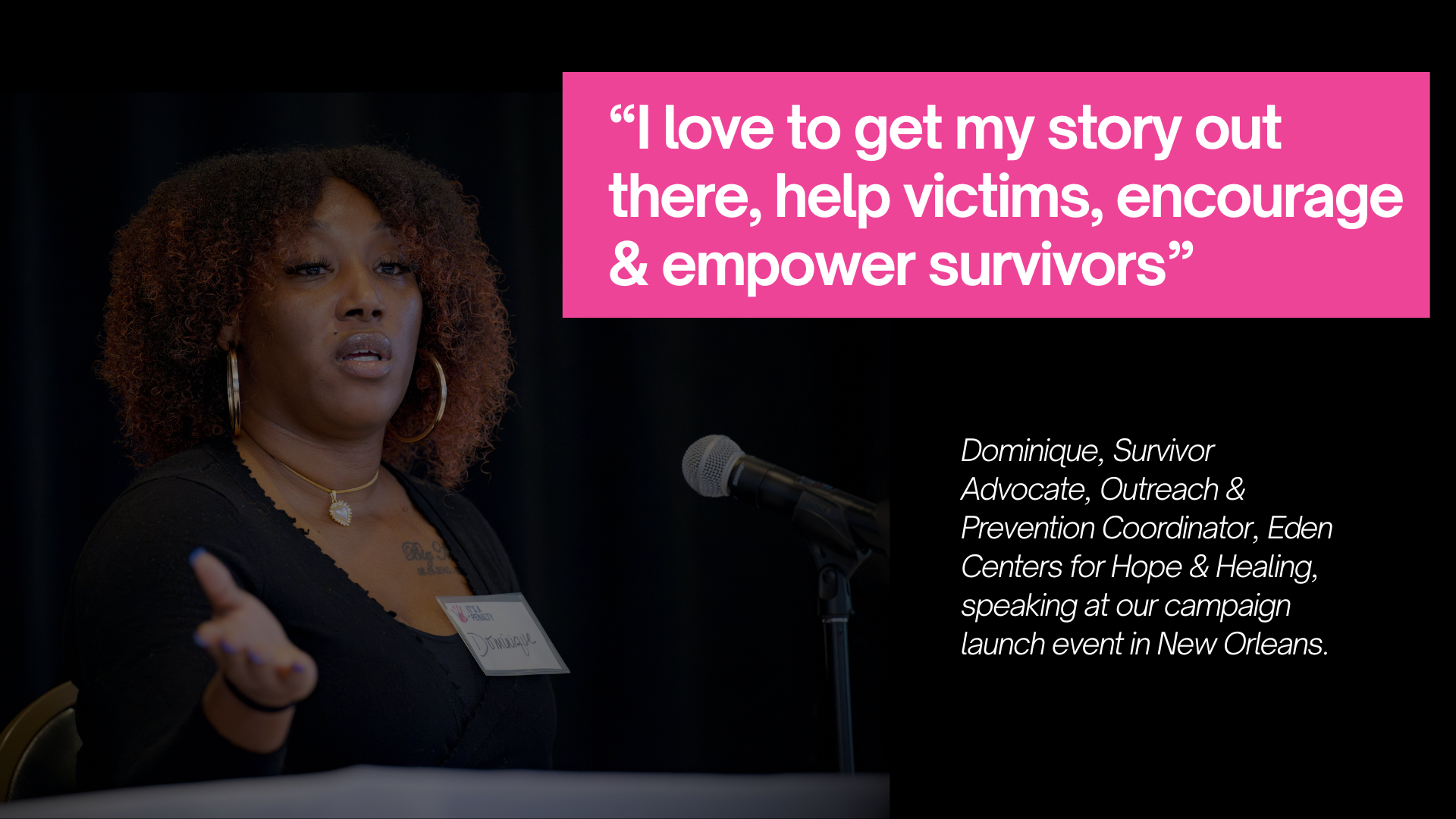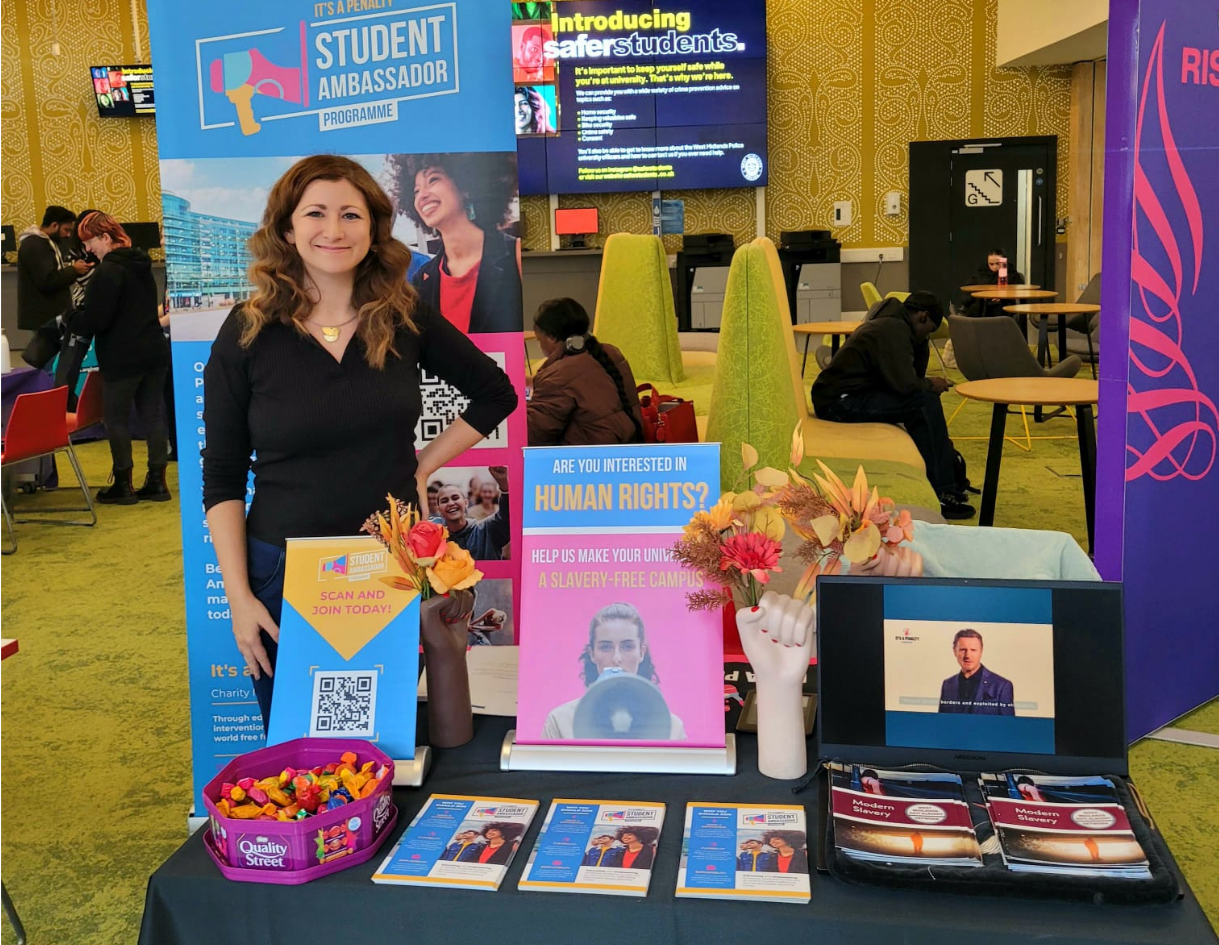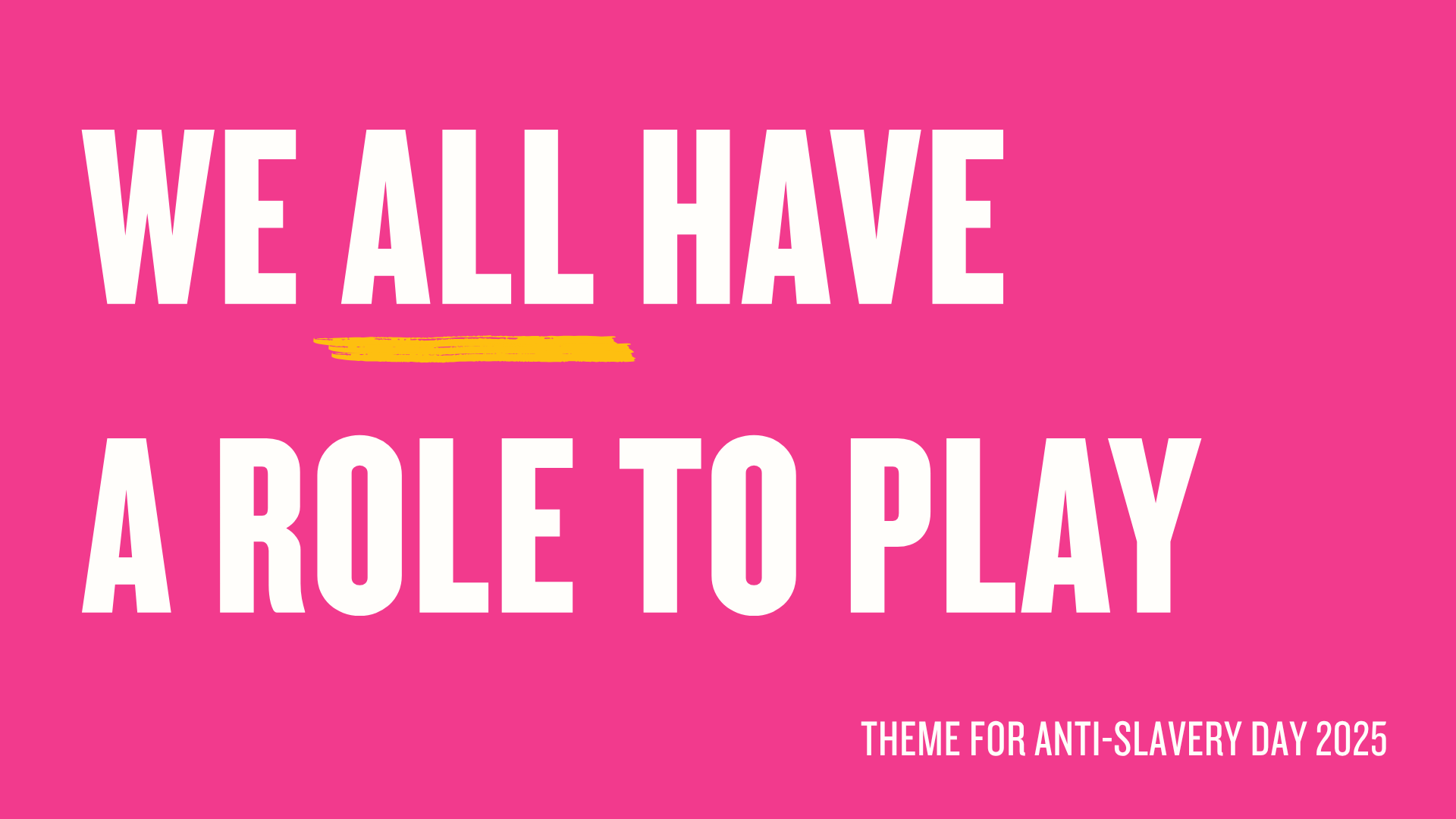
This week, as we mark Anti-Slavery Day 2025, we recognise the crucial role of survivors in shaping conversations, training, and response efforts to human trafficking prevention.
Survivor Voices Matter
When it comes to tackling human trafficking, one thing is certain: real change only happens when people with lived experience are part of the conversation. Survivor engagement isn’t an ‘add-on’, it’s vital, and what makes anti-trafficking efforts real, relevant, and impactful.

At It’s a Penalty, we take a survivor-centered and locally informed approach to our global awareness campaigns during major sporting events. Survivor advocates play a vital role in shaping our initiatives, sharing best practices with cross-sector leaders, and ensuring our organisation and partners are better equipped to prevent human trafficking.
As we prepare for our 2026 campaigns, including the Super Bowl LX, FIFA 2026 World Cup (across Mexico, Canada, and the U.S.) and the Commonwealth Games Glasgow 2026, collaboration is more vital than ever. By partnering with local NGOs, and listening to feedback from survivors, we ensure our initiatives are culturally sensitive, community-driven, and impactful. This approach enables us to tailor our messaging to regional contexts, addressing local risks, while maintaining a unified global impact.
Survivors Training Students
It’s a Penalty Programme Coordinator Liz Lowther (pictured) shares how insights from survivors and Lived Experience Advocates shaped student training programmes.

We partnered with the West Midlands Anti-Slavery Network (WMASN) and their VOICE survivor panel to enhance our programme working with students. The initiative aimed to equip university students with the knowledge and confidence to identify and respond to abuse and exploitation.
One of the most powerful aspects of the programme was hearing first-hand survivor journeys, shared through our frontline partners. These stories highlighted the realities of human trafficking, that resonated with the students.
Together with WMASN, we’ve empowered the students across the West Midlands to understand and respond to the risks of exploitation both on campus and beyond.
Supported by funding from the Inclusive Communities Fund, 94 student volunteers from nine universities received in-depth training on:
-
Recognising risk factors and warning signs
-
Navigating real-world issues affecting students, such as money mule scams, unsafe landlords, sextortion, and drink spiking

Lived Experience embedded in Training Courses
To ensure authenticity, a Lived Experience Consultant reviewed our student ambassador online training courses highlighting survivor perspectives and practical ways learners can take action.
Over 500 students completed our online training courses, which addressed issues particularly relevant to young people, including drug trafficking, sex-for-rent arrangements, and visa exploitation.
Embedding lived experience in the training made it more engaging, equipping students to act with understanding and confidence to build safer communities.
When Survivors Lead, Change Follows
When survivors lead, real change happens. No policy or programme can fully capture the complexity of exploitation without survivor voices. Survivors bring insights that no research paper or statistic can match. They know the risks, the barriers, and the resilience it takes to rebuild.
Listening to survivors challenges us to do better, shaping responses that are effective and can prevent human trafficking, exploitation and abuse.
Thank You
A heartfelt thank you to the VOICE panel for their guidance, insight, and commitment to ensuring survivor voices remain at the heart of everything we do. Find out more about the VOICE panel of the West Midlands Anti-Slavery Network here.

